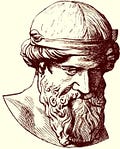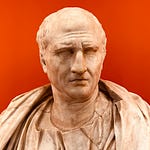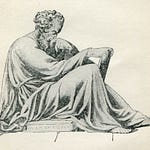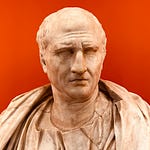Welcome to Practical Wisdom, a weekly podcast about ancient Greco-Roman philosophy. I am your host, Massimo Pigliucci.
We are back to Plato, and specifically the Laches, one of his early dialogues. The topic, you may remember from episode 29, is the concept of courage. Socrates and two generals, Laches and Nicias, are trying to arrive at a good definition of what courage consists of.
We resume at the point where Laches makes a new suggestion, that courage is endurance accompanied by wisdom. Let’s listening in:
Quote
“LACHES: I take courage to be a certain endurance present in one’s character, if I have to mention the element essentially present in all cases.
SOCRATES: Now, this is how it appears to me: by no means every kind of endurance, I think, can appear to you to be bravery. So endurance accompanied by wisdom would be both fine and good, wouldn’t it?
LACHES: Certainly.
SOCRATES: But what of it when accompanied by foolishness? Surely it’s quite the opposite, damaging and detrimental?
LACHES: Yes.
SOCRATES: So, according to your account, wise endurance will be bravery.
LACHES: So it seems.
SOCRATES: Let’s see now: wise, but wise in what respect? Perhaps in every respect, great or small? Suppose, for instance, someone showed endurance in spending his money wisely, because he realized that if he spent it, he’d make a profit: would you call him brave?
LACHES: Good heavens, I certainly wouldn’t!
SOCRATES: Well then, suppose during a war a man showed endurance by being prepared to fight: he has calculated his chances wisely and realized that others will support him, and that he’ll be fighting an enemy outnumbered and outclassed by his own side, and that he has the stronger position – now, which would you say is the braver, the man showing endurance with the benefit of this kind of wisdom and these resources, or a man from the opposing camp willing to show endurance in standing against him?
Listen to this episode with a 7-day free trial
Subscribe to Figs in Winter: New Stoicism and Beyond to listen to this post and get 7 days of free access to the full post archives.












